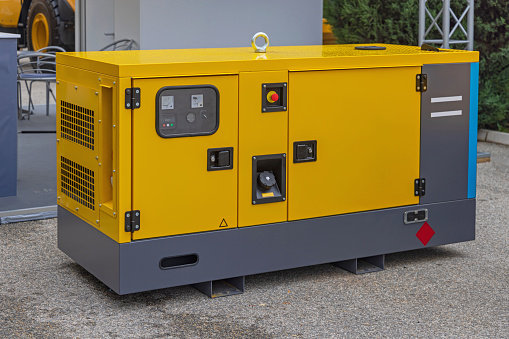Do you know any information about generator insurance? Many people have backup generators in case the electricity goes out. This happens frequently since most residential locations are impacted by rain, wind, or other forms of storms.
These generators help to keep food fresh, the house warm, and the water running. So, if something goes wrong with your generator, will your homeowner’s insurance cover it?
If your generator is damaged as a result of a covered peril, such as a tornado or fire, your homeowner’s insurance will cover it as part of your personal property coverage type C. Your insurance policy will not cover you if your generator breaks due to normal wear and tear.
A generator is an excellent addition to any home. It may even contribute to your annual premium. Continue reading to find out more about generators and how they are covered by your homeowner’s insurance.
Read Also: Insurance MGAs: Opportunities And Considerations For Investors
When your house insurance covers your generator
A homeowner’s insurance policy will cover your generator if it is damaged or destroyed by any of the 16 stated dangers in the policy. This is extensive coverage that comes in useful when the unthinkable occurs.
When it comes to generators, insurance considers them to be personal property. Generators, for example, are often covered under personal property coverage category C.
This implies that your insurance policy will analyze the generator’s real cash worth or replacement cost and issue a check for the difference, less the policy’s deductible.
The type of replacement insurance offered is determined by the insurance policy you choose.
If your personal property is insured on an actual cash value basis, you will not receive the whole dollar amount to purchase a new generator; rather, the insurance provider will deduct depreciation from the generator’s replacement cost. You will not have to worry about depreciation if your personal property is insured on a replacement cost basis.
Read Also: What Is A Line Of Credit?
The following are some examples of when a damaged generator will be covered:
- Fire
- Lightning strike
- Theft
- Vandalism
- Tornado (windstorm)
- Explosion
These are various sorts of designated covered risks. Your policy will specify which risks are covered.
A typical HO-3 coverage protects personal property against loss caused by 16 specified dangers.
Your generator will be insured on an open-peril basis if you hold a premium HO-5 policy.
Except for the exclusions mentioned in your policy, open-peril coverage protects you against any hazards.
After filing a claim, an adjuster will evaluate and process it, and the insured can expect to receive a payment.
Uncovered generator issues
Many times, your insurance will cover a broken generator, but there are just as many times when they will deny coverage. This could be due to an insurance policy exclusion or other reasons. The following are the most typical causes of denial:
Read Also: 20 Best Night Jobs and Side Gigs to Make Extra Money
- Unauthorized or incorrect installation. If your generator was improperly placed or did not acquire a permit for installation, it may be excluded from your claim due to the increased risk.
- Negligence. If you are a homeowner who was aware of a problem with the generator and its plumbing before it failed, you may be ineligible for the claim. Homeowners must maintain their equipment; failing to do so may result in a charge of negligence.
- A power outage. Items damaged by an electrical surge are not covered by homeowners’ insurance. If you damage your generator by consuming too much power or generating an electrical wave, you will be responsible for repair or replacement.
While these are not ideal conditions, they do occur. Preventing them can help you save money and time in the long term. It can also assist you to avoid submitting a claim that will remain on your insurance history regardless of whether it is granted or denied.
Do standby generators reduce my insurance premium?
Standby generators are types of generators that turn on automatically in the event of a power outage. These generators are useful because they help to prevent power spikes, frozen pipes, and food loss, as well as ensure that other critical functions continue to operate during an outage.
Read Also: Why is Money Important to Society? (Top 7 Reasons)
Many insurance companies may provide homeowners with discounts on their annual premiums if they have these types of generators because of their valuable features. It minimizes the overall risk of the home having one.
Generators produce security.
In the event of a power outage, generators are an excellent option to keep your home warm and pleasant.
This is critical since it can help to prevent other unforeseen dangers from developing as a result of a shortage of electricity. So don’t be afraid to investigate generators. They are an excellent investment for your home and family.


